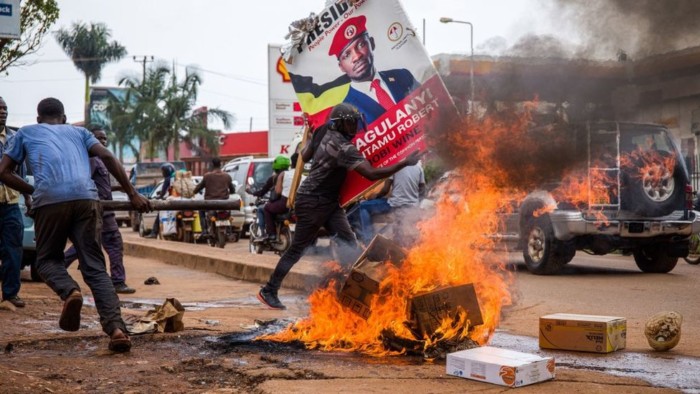By Our Reporter
For two days in November 2020, Uganda witnessed some of the most violent riots in a decade that were triggered by the arrest of opposition presidential candidate Robert Kyagulanyi, who is challenging the incumbent Yoweri Museveni in the February 14 2021 election.
In the violence that ensued, contingents of heavily armed police and the army responded with tear gas and live ammunition, resulting in the death of at least 50 people something that left a couple of Ugandans regretting Museveni’s brutal and deadly regime.
The lethal use of force to break up a riot provoked national and international condemnation. It also raised questions around the standard applied by Uganda’s security forces in quelling this and similarly deadly riots in the past.
The blanket and indiscriminate use of firearms and live ammunition led directly to the carnage witnessed in only two days. The current framework contains highly permissive and ambiguous standards that enable law enforcement actors to use excessive force with no clear lines of accountability.
The right to life is protected under Uganda’s constitution. This protection was recently buttressed by Uganda’s Constitutional Court, which declared as unconstitutional the wide latitude given to law enforcers under Uganda’s Police Act.
The act previously empowered police to do “all things necessary” when dispersing unlawful assemblies. It granted immunity for any death or injury caused in the process while condoning police brutality. The Police Act has not yet been amended to reflect the Constitutional Court’s ruling.
According to UN principles on the use of force and firearms, lethal use of firearms must be restricted to instances of an imminent threat of death or serious injury. These principles require that law enforcement operations must be carefully planned to avoid the use of force or use it as a last resort and employ the least harmful means necessary, to minimize damage and risk to bystanders and preserve human life.
But Uganda’s security minister, General Elly Tumwine – a top army general – asserted that security forces have a right to shoot and kill in a situation where an offender displays a “certain level of violence”. He did not set out where the boundaries lie something that has since left Human Rights violations in progress.
If you would like your article/opinion to be published on Uganda’s most authoritative news platform, send your submission on: [email protected]. You can also follow DailyExpress on WhatsApp and on Twitter (X) for realtime updates.



